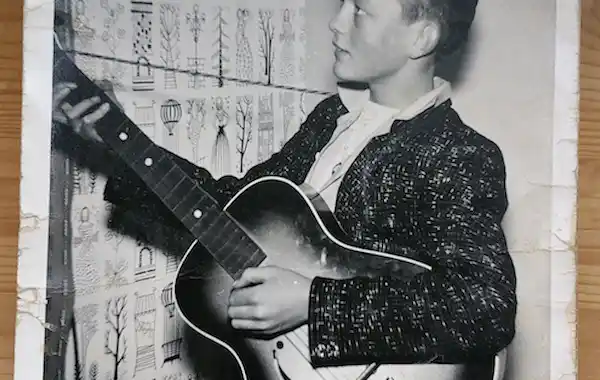25 July 2017
|
Talk to your older relatives about the music of their youth and you may find a rich new seam of research that takes your family history up a beat, says Family Tree assistant editor Karen Clare
The history of popular music goes way back into the mists of time and it would be fairly impossible to identify what would have been your 2x great-granny’s favourite tune, unless she wrote it in a diary that survives in the family archive. However, I’m sure many of our ordinary relatives loved the music hall and family sing-songs around the piano, if they were lucky enough to have access to one.
Popular singers heard on gramophone records and the wireless are likely to have got your ancestors’ feet tapping, while the 1920s and 1930s saw jazz and dance music take hold in halls and hotel ballrooms across the land. Many of us have fond memories of our own youthful musical tastes. Those born in the 1970s like me will recall spending Sunday evenings desperately trying to record the pop charts off BBC Radio One on a fiddly cassette player, finger on the on/off button, trying to avoid the DJ’s waffle and hoping your mum wouldn’t suddenly burst in and demand you tidy your room.
Join the Family Tree community
Follow us on facebook
Follow us on twitter
Sign up for our free e-newsletter
Discover Family Tree magazine
Exploring your relatives’ musical tastes in days gone by is a fascinating way of learning more about their lives.
My love of music has filtered down from my baby boomer parents. As a young apprentice electrician in the 1960s, my dad found himself working away from his Norfolk home in one of the most exciting places to be in the world for emerging music at that time – Liverpool, home of The Beatles. Chatting to Dad about his gig-going youth has been absolutely fascinating – even more so when he fetched a treasure-trove of band posters, nightclub membership cards and ticket stubs that he has hung on to all these years for me to see.
It wasn’t only British cities that experienced this post-war surge in popular music. In my parents’ own back yard in East Anglia, big-name gigs were taking place in the most unlikely of venues. Barbeque ‘67 – a pre-Woodstock music festival held at Tulip Bulb Auction Hall in the small Lincolnshire market town of Spalding – saw the likes of Jimi Hendrix, Cream, The Move and Pink Floyd rock the stage. The Pavilion in the tiny North Norfolk coastal village of West Runton was another astonishingly hip music venue between the 1960s and early 1980s, hosting many top bands of the day – from Chuck Berry and T-Rex to The Sex Pistols.
Lively threads on the nostalgia Facebook page for my home town of King's Lynn reveal hundreds of comments from my parents’ generation, fondly remembering blaring out the latest pop songs on the jukebox in their favourite teen hangout, the Whiskey A-Go-Go coffee bar (where my mum and dad met), and racing home from gigs at the iconic Kit-Kat Club in nearby Hunstanton, after dancing the night away to resident band The Offbeats.
Whatever musical era we were brought up in, it’s important to preserve these individual memories to enrich the story of our families. Talk to older generations about music in their youth and play them their favourite songs to see what memories come flooding back. You may be lucky enough to hear the soundtrack to their lives.
• Read the full story in the September issue of Family Tree, in our store now.
Photograph © David Cloudesley









